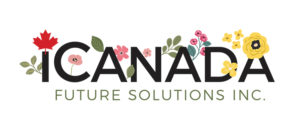Summer jobs offer a valuable opportunity to gain Canadian work experience, build your resume, and earn extra cash. With careful planning and proactive searching, you can land a fulfilling summer job that enriches your time during the summer.
Here’s a breakdown of frequently asked questions to guide you on your summer job hunt:
Am I Eligible to Work During the Summer in Canada?
Yes, if you meet these requirements:
- You’re a full-time student at a designated learning institution (DLI) with a valid study permit.
- Your study permit allows off-campus work. If not, you can request an amendment from IRCC.
- You’re enrolled in a program that lasts at least six months and leads to a degree, diploma, or certificate.
How Many Hours Can I Work?
- During regular semesters: Up to 20 hours per week.
- During scheduled breaks (summer!): You can work full-time (40 hours/week).
What Kind of Summer Jobs Can I Get?
The possibilities are vast! Popular options include:
- Hospitality: Restaurants, cafes, hotels – these offer flexible hours and the chance to interact with people.
- Retail: Gain customer service experience in clothing stores, bookstores, or electronics shops.
- Tourism: Work as a tour guide, receptionist, or park attendant, showcasing Canada’s beauty.
- Office Work: Utilize your administrative skills in data entry, customer support, or social media roles.
- Freelancing: Offer your writing, editing, graphic design, or programming skills online.
How Can I Find Summer Jobs?
- School Job Boards: Many universities and colleges have online job boards listing summer opportunities for students.
- Job Search Websites: Explore general job boards like Indeed, Glassdoor, or Monster Indeed, Glassdoor, and Monster and filter for “summer jobs” and “student.”
- Networking: Talk to professors, career advisors, or current student workers for leads and recommendations.
- Company Websites: Check the career sections of companies you’d like to work for.
Do I Need a Work Permit for a Summer Job?
No, your valid study permit with off-campus work authorization allows you to work during scheduled breaks like summer.
Additional Tips:
- Brush Up Your Resume: Highlight your skills, education, and relevant experience.
- Practice Your Interview Skills: Research common interview questions and prepare clear, concise answers.
- Showcase Your Language Skills: Strong English or French is a plus for many employers.
- Be Enthusiastic and Reliable: Make a positive first impression and show your commitment to the job.





